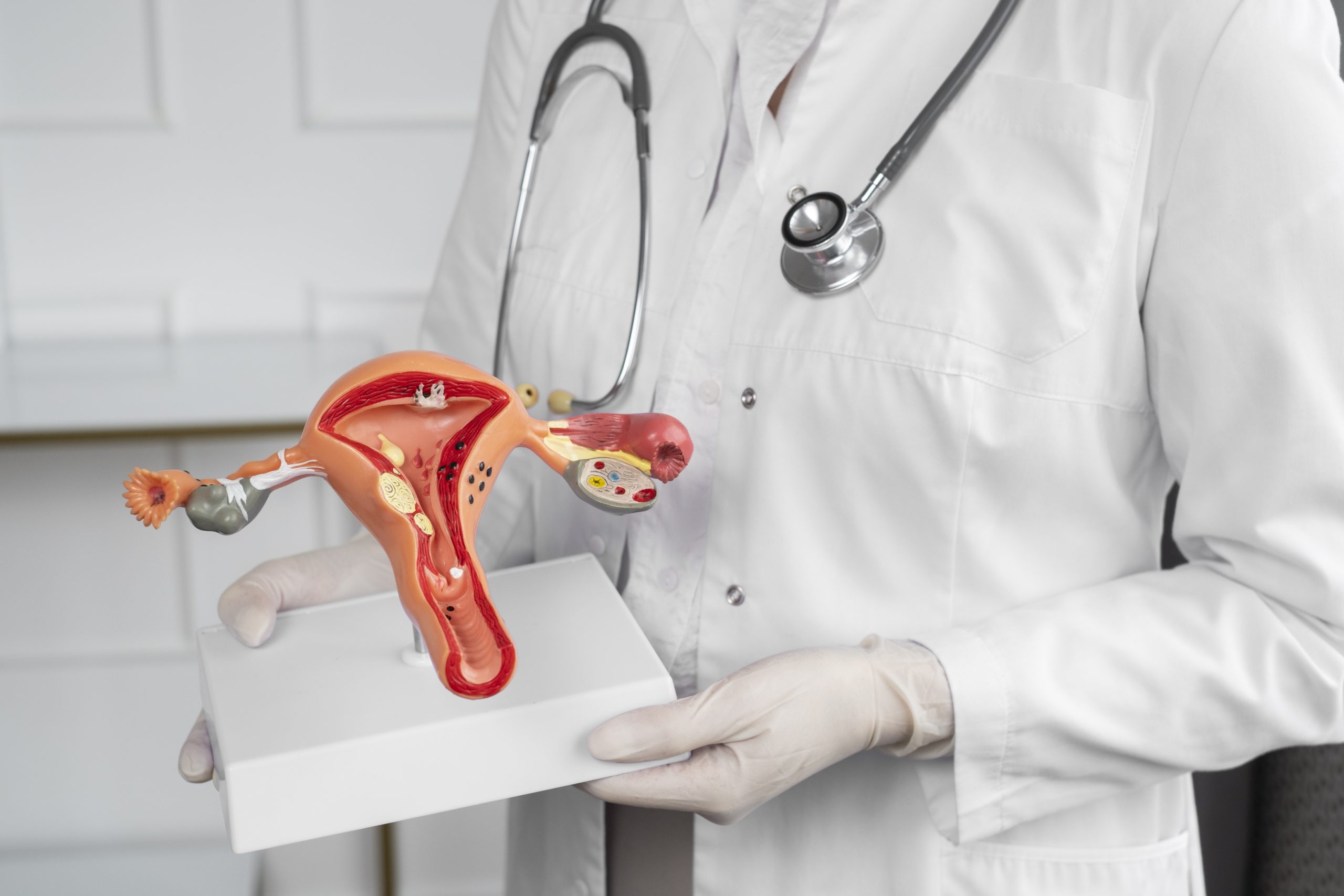

Polycystic ovary syndrome (PCOS) is a widespread endocrine disorder with global prevalence, disrupting hormonal balance, fertility, and well-being in countless women. Its intricate nature and diverse symptoms have posed treatment challenges. Yet, a groundbreaking PCOS treatment has emerged from the University of Chicago, offering hope by targeting multiple symptoms through body system regulation and inflammation reduction.
Recent findings highlight the potential of this innovative therapeutic method involving mesenchymal stem cell-derived extracellular vesicles (EVs), commonly known as exosomes. These minute, independently moving molecular parcels are released by stem cells and hold significant promise.
Current PCOS treatments merely address the symptoms, and the most common treatments – oral contraceptives – do not address patients’ struggles with infertility,” said Hang-Soo Park, Ph.D., a staff scientist at UChicago and the study’s first author. “Our approach represents a paradigm shift from symptom management to treating the underlying causes. We hope this will prove more effective in the long term and allow patients to have children if they wish to do so.”
Previously, the team had reported their discovery that mesenchymal stem cells (MSCs), versatile adult cells with regenerative potential, emit beneficial factors to alleviate PCOS symptoms. However, the exact nature of these factors remained unknown. The most recent study pinpoints these factors as the therapeutic components, identifying the extracellular vesicles (EVs) they release.
The study unveiled that MSC-derived EVs effectively reduced the activity of genes responsible for the excess production of androgen hormones, a defining feature of PCOS. Building on this discovery, the researchers administered EVs to PCOS-afflicted mouse models, successfully mitigating some common metabolic issues linked to the condition, like elevated glucose levels. Remarkably, these EVs could be administered either intravenously or directly into the mice’s ovaries, consistently restoring normal ovarian function in both scenarios.
“Our study demonstrates the resilience of the ovaries under EV treatment, offering renewed hope for women battling PCOS-related fertility issues,” said Park.
The scientists speculate that the observed healing process may involve an immune signaling protein named IL-10, renowned for its anti-inflammatory characteristics. It’s hypothesized that the EVs act as carriers, stabilizing IL-10 and delivering it to specific cells. This enhances IL-10’s capacity to diminish inflammation and promote the rejuvenation of tissues and functions.
Therapies based on extracellular vesicles (EVs) present clear advantages over traditional approaches. Unlike whole stem cell therapy, EVs are cost-effective and readily available for widespread application. Moreover, they exhibit a superior safety profile, with minimal worries regarding tumor formation or immune reactions. Remarkably, clinical trials employing EV therapy for reproductive disorders have secured approval, highlighting the promising potential for translating this research into tangible real-world advantages.
Park emphasized that certain companies are currently mass-producing EVs that have demonstrated safety in clinical trials. Consequently, he believes that with a final therapeutic design, the production process will not pose significant technical challenges.
In collaboration with principal investigator Ayman Al-Hendy, MD, who is a Professor of Obstetrics and Gynecology at UChicago Medicine, and a team of researchers, Park is actively seeking grants to support human clinical trials for this EV-based treatment. Concurrently, they are conducting further laboratory research with the aim of crafting improved EVs that can more precisely target ovarian tissue, potentially enhancing their ability to reverse damage.
“The key takeaway for PCOS treatment patients right now is that researchers are working hard to understand the pathways involved,” said Park. “As we understand more and more, the treatments will become even safer and more effective.”
more recommended stories
 Pediatric Crohn’s Disease Microbial Signature Identified
Pediatric Crohn’s Disease Microbial Signature IdentifiedKey Points at a Glance NYU.
 Nanovaccine Design Boosts Immune Attack on HPV Tumors
Nanovaccine Design Boosts Immune Attack on HPV TumorsKey Highlights Reconfiguring peptide orientation significantly.
 High-Fat Diets Cause Damage to Metabolic Health
High-Fat Diets Cause Damage to Metabolic HealthKey Points Takeaways High-fat and ketogenic.
 Acute Ischemic Stroke: New Evidence for Neuroprotection
Acute Ischemic Stroke: New Evidence for NeuroprotectionKey Highlights A Phase III clinical.
 Statins Rarely Cause Side Effects, Large Trials Show
Statins Rarely Cause Side Effects, Large Trials ShowKey Points at a Glance Large.
 Anxiety Reduction and Emotional Support on Social Media
Anxiety Reduction and Emotional Support on Social MediaKey Summary Anxiety commonly begins in.
 Liquid Biopsy Measures Epigenetic Instability in Cancer
Liquid Biopsy Measures Epigenetic Instability in CancerKey Takeaways Johns Hopkins researchers developed.
 Human Antibody Drug Response Prediction Gets an Upgrade
Human Antibody Drug Response Prediction Gets an UpgradeKey Takeaways A new humanized antibody.
 Pancreatic Cancer Research: Triple-Drug Therapy Success
Pancreatic Cancer Research: Triple-Drug Therapy SuccessKey Summary Spanish researchers report complete.
 Immune Cell Epigenome Links Genetics and Life Experience
Immune Cell Epigenome Links Genetics and Life ExperienceKey Takeaway Summary Immune cell responses.

Leave a Comment